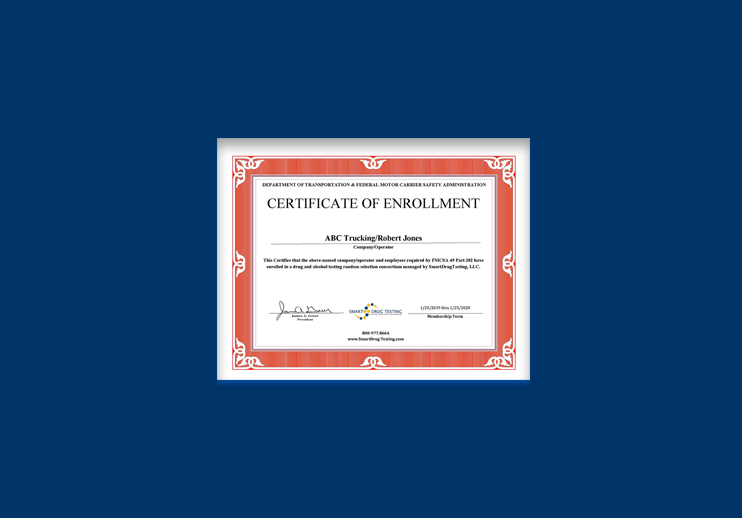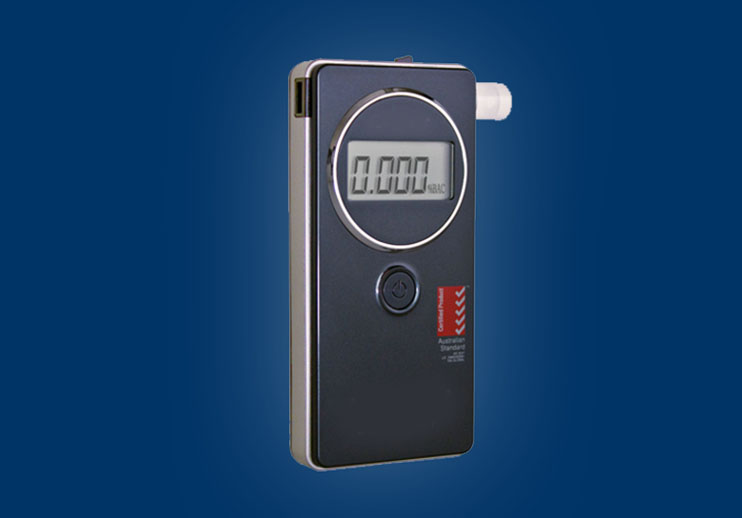DOT Drug Testing in North Carolina
DOT Testing in North Carolina
We provide North Carolina DOT Drug Testing, DOT Alcohol Testing, DOT Physicals and DOT Consortium enrollment at locations throughout the State of North Carolina. Our North Carolina DOT Drug Testing locations are within minutes of your home or office. Same day service is available in most places.
The staff of Schedule a Drug Test, a division of Accredited Drug Testing, Inc., is trained and certified in North Carolina DOT drug testing procedures and all North Carolina DOT drug tests are analyzed by a SAMHSA Certified Laboratory and reviewed by our licensed physicians, who serve as the Medical Review Officers (MRO). To schedule a DOT drug test at any of our North Carolina locations, call (800) 315-1519 or you may schedule your test 24/7 by clicking the “Order your Test” button.
What is a DOT drug test?
A DOT Drug test is a drug test that’s regulated by the government – specifically, the Department of Transportation (DOT).
In 1991, the US Congress passed the Omnibus Transportation Employee Testing Act when they recognized the need for a drug and alcohol-free transportation industry. The act required DOT agencies to implement drug and alcohol testing of safety-sensitive employees to maintain the safety of the traveling public and workers.
The DOT’s drug screening rules and procedures are listed within Title 49 of the Code of Federal Regulations (CFR) Part 40, commonly known as “Part 40.” These rules are published by an office within the DOT; the Office of Drug & Alcohol Policy & Compliance (ODAPC).
DOT agencies and the U.S. Coast Guard write industry-specific regulations that explain who is subject to testing, when, and in what situations. Industry employers implement the regulations that apply to their business.
Who is required to get DOT drug tests?
Anyone designated in DOT regulations as a “safety-sensitive” employee is subject to DOT drug and alcohol testing. A safety-sensitive employee is someone who holds a job that can impact both their own safety and the safety of the public.
These are some of the DOT departments with safety-sensitive positions:
- Federal Aviation Administration: Flight crews, flight attendants, aircraft dispatchers, ground security coordinators, etc.
- Federal Motor Carrier Safety Administration: Commercial Driver’s License (CDL) holders who operate Commercial Motor Vehicles (CMVs), vehicles that carry 16 passengers or more (including the driver), or vehicles that transport hazardous materials and are required to display a DOT placard.
- U.S. Coast Guard: Crew members operating a commercial vessel.
- Pipeline and Hazardous Materials Safety Administration: Operations, maintenance, and emergency response workers.
- Federal Railroad Administration: Hours of Service Act personnel, engine & train workers, signal service workers, or train dispatchers.
- Federal Transit Administration: Vehicle operators, controllers, mechanics, and armed security.
What do DOT drug tests test for?
All DOT drug tests use the same 5-panel test. It tests for:
- Marijuana metabolites/THC
- Cocaine metabolites
- Amphetamines (including methamphetamine, MDMA)
- Opioids* (including codeine, heroin (6-AM), morphine, hydrocodone, oxycodone, hydromorphone, and oxymorphone)
- Phencyclidine (PCP)
Although there are several options for drug tests, DOT regulated drug tests must use urine samples.
When are safety-sensitive employees required to get DOT drug tests?
DOT drug tests are required in the following situations:
Pre-employment, or before you start your job responsibilities.
Reasonable suspicion/cause, or if one or more trained supervisors reasonably believes/suspects that you are under the influence of drugs. This must be based on observations concerning appearance, behavior, speech, smell, etc.
Random testing. Random tests must use a truly random selection process – each employee must have an equal chance to be selected and tested. These are completed quarterly.
Return-to-duty testing, which is required after a violation of drug and alcohol rules. You can’t return to any DOT job before being tested and may be subject to unannounced testing at least 6 times in first 12 months. These tests must be conducted under direct observation.
Follow-up testing that takes place after return-to-duty. A Substance Abuse Professional (SAP) manages the follow-up testing for up to 5 years, determining how many times an employee is tested, and for what substance. These are completed in addition to other DOT required testing.
Post-accident testing. This is required if you’re involved in an accident meeting certain DOT criteria. An alcohol test must occur within 8 hours of the accident, and a drug test within 32 hours.
What happens if I fail my DOT drug test?
If you fail your DOT regulated drug test, DOT regulations require your employer to immediately remove you from performing any DOT safety-sensitive job. There may be other consequences, too, like losing your certification or license. This depends on your company’s policy or employment agreement.
Schedule a Drug Test, a division of Accredited Drug Testing, Inc., workforce experts stay up-to-date on DOT regulations, and can ensure that your business maintains compliance. If you’re interested in using our regulated drug testing services, connect with a member of our team. Our clinics also have a certified medical examiner on hand at all times to perform DOT physicals.
(Reference: https://www.transportation.gov/sites/dot.gov/files/docs/Employee_Handbook_Eng_2014_A.pdf)
We Have DOT Drug Testing Centers in all cities throughout the State of North Carolina and nationwide. (Call for additional drug testing locations)
Please be aware that our North Carolina DOT drug testing centers do not accept any form of payment and require a test registration/ donor pass to administer a drug, alcohol, or any other type of test. You must call (800) 315-1519 to register for a test or you may register online, no appointment is needed, but a test registration form is required. Your zip code will be used to find our closet drug testing center to perform the drug or alcohol test which is needed.
Our North Carolina drug testing services are delivered with the highest commitment to customer satisfaction and we are dedicated to providing convenient, cost effective and confidential drug and alcohol testing services with one of the fastest results reporting methods available in the industry. Regardless if you are an individual ordering one test or an employer scheduling 100 tests, our commitment to providing outstanding customer service is the same. We also only use certified laboratories and all test results are verified by our Medical Review Officers (MRO).
On the road or on vacation? No worries. Schedule a Drug Test has over 10,000 Drug and alcohol testing centers available in all cities and we can schedule your test, ANYWHERE, ANYTIME!
FAQ's About DOT Testing in North Carolina
DOT drug testing is different from regular drug tests. For example, even though there are several ways to perform a drug test, the DOT only allows urine drug testing. They also require a very thorough testing process, so results usually take longer to process.
- HHS certified lab testing only
- No rapid, instant, or point of contact testing permitted
- Tests for marijuana, cocaine, phencyclidine, amphetamines and methamphetamine, opiates
Here are some examples of jobs that must be tested as part of the DOT drug testing program. This list isn’t comprehensive, and certain jobs may have additional requirements. For a full list, please visit the Department of Transportation’s website.
- Commercial vehicle drivers
- Locomotive engineers, dispatchers, and signalmen
- Flight crew members and air traffic controllers
Cannabis: 7-30 days in urine and up to 2 weeks in blood.
Cocaine: 3-4 days in urine and 1-2 days in blood.
Codeine: 1 day in urine and up to 12 hours in blood.
Heroin:3-4 days in urine and up to 12 hours in blood.
The Department of Transportation has different testing requirements for different areas of transportation. For example, air traffic controllers may not have the same testing requirements as commercial vehicle drivers. To find the requirements for your industry or job, visit Transportation.gov. You can also sign up for their newsletter so you’ll be notified if anything changes.
The Department of Transportation (DOT) has special requirements for drug testing. These requirements impact jobs governed by DOT regulations, like trucking and commercial vehicle drivers. DOT drug tests can be performed for many reasons. They can be performed randomly, when an employer has reasonable suspicion that an employee is intoxicated, as part of a DOT physical exam, after an accident, and as part of a return-to-duty exam—just to name a few.
If your urine is being tested only for a urinalysis, you can eat and drink normally before the test. If you‘re having other tests at the same time, you may need to fast for a certain amount of time before the test.
North Carolina (/ˌkærəˈlaɪnə/ (listen)) is a state in the southeastern region of the United States. It borders South Carolina and Georgia to the south, Tennessee to the west, Virginia to the north, and the Atlantic Ocean to the east. North Carolina is the 28th most extensive and the 9th most populous of the U.S. states. The state is divided into 100 counties. The capital is Raleigh, which along with Durham and Chapel Hill is home to the largest research park in the United States (Research Triangle Park). The most populous municipality is Charlotte, which is the second largest banking center in the United States after New York City.[7]
The state has a wide range of elevations, from sea level on the coast to 6,684 feet (2,037 m) at Mount Mitchell, the highest point in North America east of the Mississippi River.[8] The climate of the coastal plains is strongly influenced by the Atlantic Ocean. Most of the state falls in the humid subtropical climate zone. More than 300 miles (500 km) from the coast, the western, mountainous part of the state has a subtropical highland climate.




